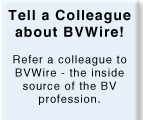
| Can you admit that a business has collapsed subsequent to the valuation date? Mel Abraham answered this question at the BVR/FAE Business Valuation Conference in New York City last month by recalling an interaction he had with a California judge a few years ago. In that case, the business had lost its largest (60%) client six months after the valuation date, and Abraham had factored the risk of client loss into his discount rate and DCF calculations. When the judge argued that this was a subsequent event, Abraham agreed but countered, “The loss of the client was definitely a subsequent event, but the risk of losing the client was known and knowable as of the date of valuation.” Looking back to valuation dates, particularly in mid-2008, you cannot include loss of revenues or other damages that actually occurred as the result of this current economic downturn, he added. However, conditions known as of the valuation date (like heavy leverage, declining assets, or other high-risk indicators) could, should, and would have been known or knowable even prior to the stock market meltdown. Essential techniques and considerations for valuing entertainment IP New technologies are eroding old economies of scale in entertainment, thereby increasing potential valuation engagements. In the case of intellectual properties, these opportunities come with new valuation challenges in the form of copyrights, trademarks, licensing agreements, and ownership and rights issues. Indeed, even knowing which valuation approach is appropriate for a revenue-producing catalogue of music, literature, film, or any other entertainment medium can be an appraisal challenge. On Wednesday, June 10, 2009, BV experts Kevin Yeanoplos, Bill Sipes, and Mike Pellegrino will make sense of this valuation arena in their 100-minute teleconference “Valuing Intellectual Property in Entertainment and the Arts.” This panel’s experience in intellectual property and entertainment valuation will provide the perfect guide to what every appraiser needs to know to take advantage of new opportunities while avoiding the pitfalls. The teleconference begins at 10:00a.m. PDT. Two CPE credits are available for this 100-minute presentation. To learn more, to hear Kevin Yeanoplos describe the program in his own words, or to register, click here. What attorneys look for when retaining financial experts and business valuation consultants Alexandria, Louisiana-based attorney and BV insider L. Paul Hood offered simple, yet compelling, insights on how BV experts can make themselves more appealing to hiring attorneys during his informative session, “Burning Issues Within the Appraisal Industry” at the 2009 NACVA and IBA Consultants Conference held in Boston last week. To put your best foot forward, Hood reminded attendees to:
Are the days of the uncredentialed BV expert over? That was just one of the many questions that U.S. Tax Court judge, the Honorable David Laro, former national program manager of the IRS and current IBA Executive Director Howard Lewis, and principal of the American Business Appraisers in San Diego, Mike Eggers, deftly fended from attendees at last week’s NACVA and IBA Consultants Conference in Boston. “Yes, undoubtedly” Judge Laro responded, with his usual cut-to-the-quick cogency. (He was also quick to remind listeners that his opinions were his own, and not those of fellow members of the federal tax bench.) “The Congress and the Service have raised the stakes for appraisers and appraisals that are significantly higher. Your field is extremely dynamic and changing all the time,” he added. “We need to rely on you. We need you to have education, experience, and exposure, and know how to render an opinion that is reliable and credible.” Judges do not undergo the same continuing education that BV experts must, but “you are helping to educate us,” Laro said. “That’s how we’re becoming more sophisticated.” For more conference coverage, see future issues of the Business Valuation Update™. Small business owners do not know their organization’s true value—opportunity for appraisers Although 43% of them plan to sell their businesses within the next 10 years, 58% of respondents to a poll of U.S.-based small business owners have not had a formal business valuation within the last year. Furthermore, they do not plan on having one done in the future, according to a new survey by the management consulting firm George S. May International. The poll of 921 small business owners across the United States also showed that business owners have some misconceptions about when a formal business valuation is needed. Consider, for instance, that 41% of respondents said they thought a valuation should only be conducted upon the sale of the business, while 30% said one should be done every three years, and 29% felt that one should be conducted once a year. The takeaway for BV experts: A back-to-basics approach to valuation that focuses on the “whys” of business value—how to get it and how to keep it—may help your firm retain clients and prospects. “Understanding the factors that determine the value of any business will pay tangible dividends by focusing on ways to increase short and long-term profitability,” said George S. May managing director, Paul Rauseo. Valuing intangible assets 101: University offers new graduate BV degree Seattle University's Albers School of Business and Economics recently announced a new Business Valuation Specialization for Master of Professional Accounting and Master of Science in Finance students and a new Post Graduate Certificate of Business Valuation for professionals with a master's degree from an AACSB accredited school. This is reportedly the first post-graduate program in the nation that focuses specifically on valuation and reporting of intangible assets. To earn a Business Valuation Specialization, students in the MPAC and MSF programs must take one or two extra classes in addition to their master's course requirements, which include a revised Business Valuation course, a new course in Valuing Intangible Assets, and a new course in Valuation for Financial Reporting. Both the Business Valuation Specialization and the Post-Graduate Certificate in Business Valuation will start in the 2009/2010 academic year. |
To ensure this email is delivered to your inbox,
please add editor@bvwire.com to your e-mail address book.
We respect your online time and privacy and pledge not to abuse this medium. To unsubscribe to BVWire™ reply to this e-mail with 'REMOVE BVWire' in the subject line or click here. This email was sent to %%emailaddress%%
Copyright © 2009 by Business Valuation Resources, LLC
BVWire™ (ISSN 1933-9364) is published weekly by Business Valuation Resources, LLC
Editorial Staff | Advertise in the BVWire | Copyright Notice
|
|



